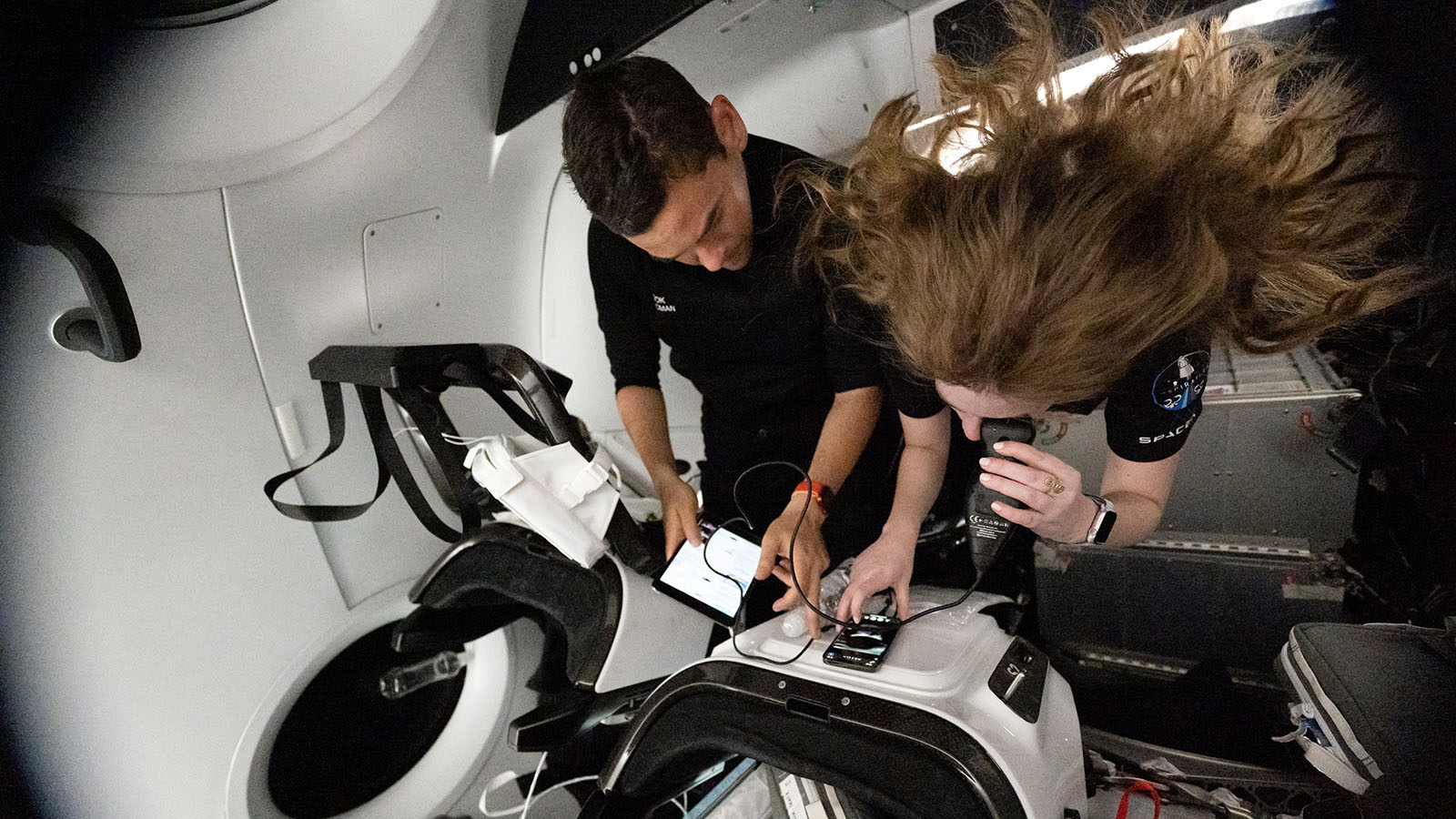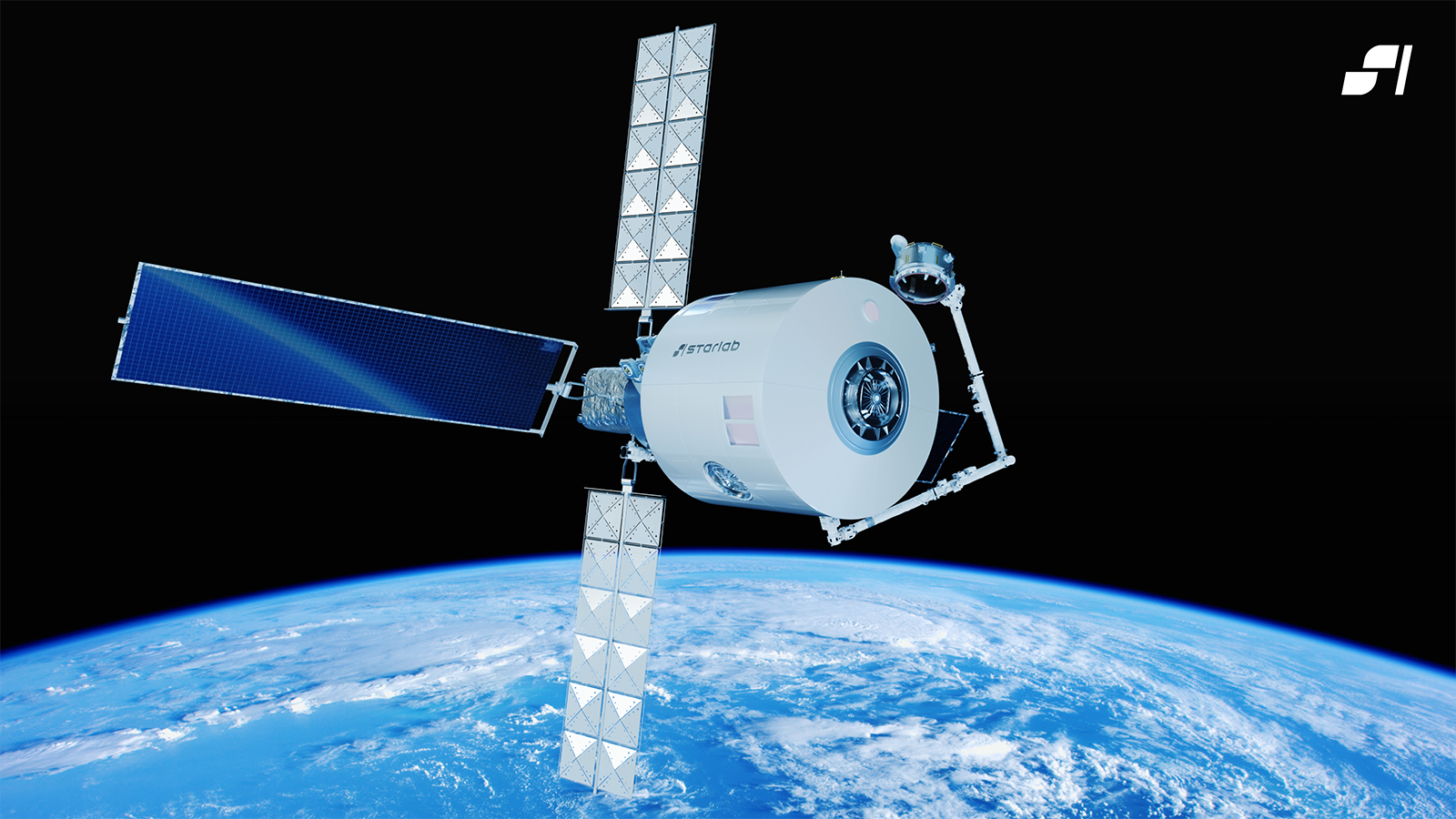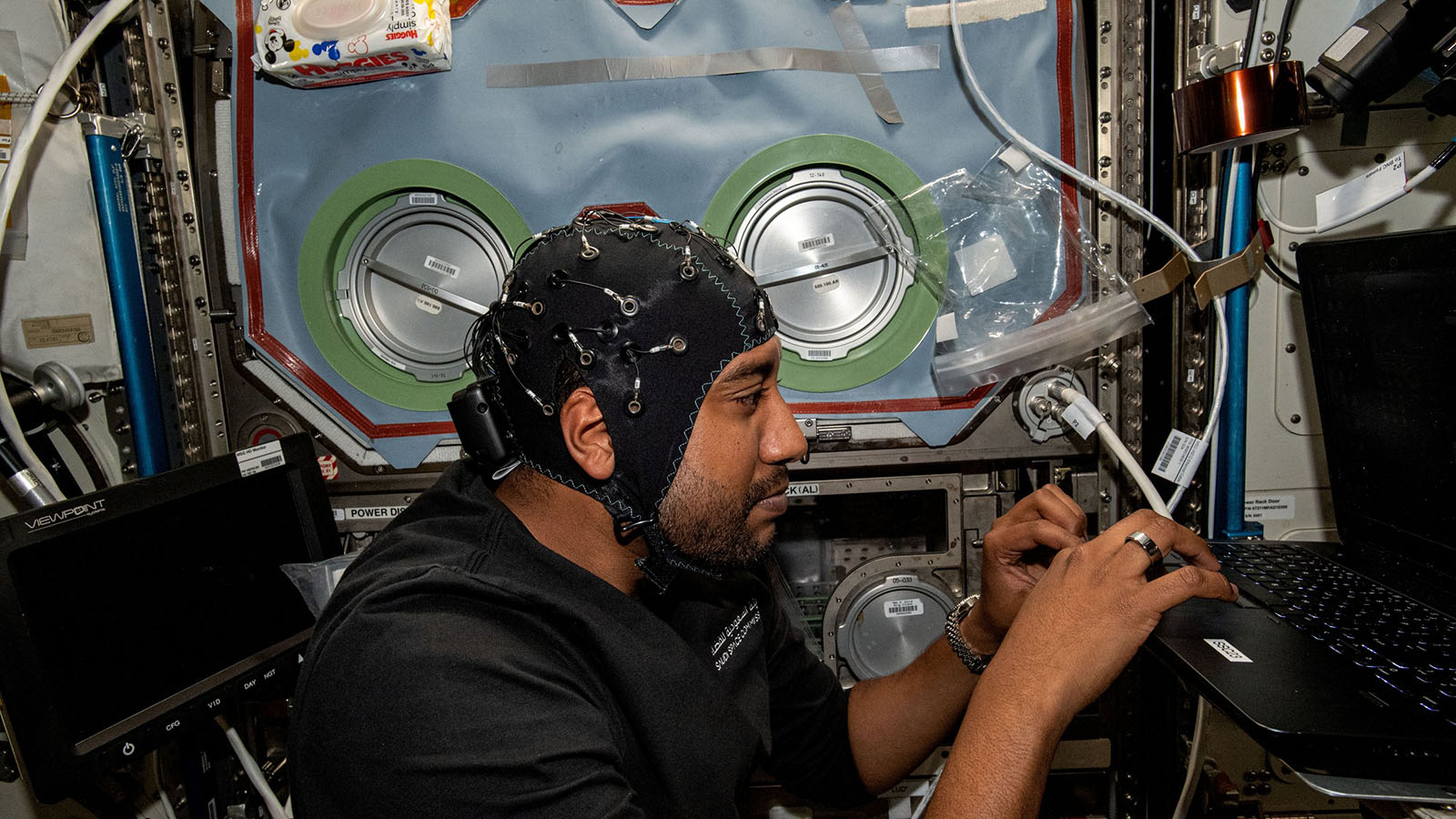Stay Up to Date
Submit your email address to receive the latest industry and Aerospace America news.
As it stands, unregulated medical experiments could be conducted aboard the coming class of privately run space stations and capsules. A cadre of scientists and ethicists is sounding the alarm and suggesting solutions. Jonathan O’Callaghan looks at the issue.
Egbert Edelbroek wants to grow a baby in space. More specifically, his company, SpaceBorn United based in the Netherlands, wants to enable human conception in space by first growing human embryos off Earth.
“The long-term goal is to enable the full of cycle of nine months, floating childbirth in space,” says Edelbroek, the company’s founder and CEO. “But there’s a lot of homework before we can do something like this.”
Currently, the regulations around such experiments are vague. If conducted through NASA on the International Space Station, researchers would need to follow a set of rules to ensure scientific rigor. But the growing fleet of private space missions is opening up new avenues of unregulated, nongovernmental research — most notably on humans — and scientists and ethicists are beginning to take note.
“Unless there are public funds being used for that research, you can pretty much do what you want to humans,” says Dorit Donoviel, a space medicine academic and an associate professor in the Center for Space Medicine at Baylor College of Medicine in Texas. Now, a group of 25 experts that includes legal scholars, a commercial space executive and Donoviel is calling for rules to be put in place to prepare for endeavors like SpaceBorn’s and those of other companies.
“We need ethics and we need guidelines,” says Donoviel. Otherwise, “It’s going to be the Wild West.”
For sure, the world of space research has shifted away from purely governmental research. Of the 12 spaceflight missions in 2023 that carried 57 humans to space, only five were government-led or sponsored. The rest were private spaceflights, conducted without the auspices of a body such as NASA. With private space missions continuing to come thick and fast, “now is the moment to begin to set up standards,” says Paul Wolpe, a member of the concerned group along with Donoviel and former senior bioethicist at NASA, who is now at the Emory University Center for Ethics in Georgia.
The proliferation of these nongovernmental missions raises “a bunch of different concerns,” says Michelle Hanlon, another member of the group and executive director of the Center for Air and Space Law at the University of Mississippi’s School of Law. “What if a commercial company says they’ll give you half price if you agree to this particular test on brainwaves?” says Hanlon. “That is epically alarming. What if a person says ‘I want to die in space’? What is the role of the state in terms of that person?”
While nothing quite so dramatic has happened yet, scientific research is already being conducted on private spaceflight missions without oversight. On the Inspiration4 orbital mission aboard a SpaceX Crew Dragon in 2021, funded by billionaire Jared Isaacman, the four astronauts — later awarded commercial space astronaut wings by FAA — took their own blood samples in space, among other experiments. The fact that this mission did not have to adhere to any ethical standards was a “watershed moment,” says Donoviel.

Research on private spaceflights continues to take place without oversight, though so far none of the experiments has particularly alarmed scientists. In November, a participant on a Virgin Galactic flight wore a sensor to monitor his own vital signs during the flight. In January, a SpaceX rocket and Crew Dragon capsule carried a crew of four European private sector astronauts and some 30 experiments to orbit for a docking with ISS. Axiom Space, whose chief scientist Lucie Low is one of the group of 25, said on its website that the experiments on the Ax-3 mission will “prioritize government-sponsored research.” The company also has plans to build a commercial space station, Axiom Station.
Other companies also are planning their own space stations, including Jeff Bezos’ Blue Origin with Sierra Space and the Denver startup Voyager Space with Airbus and Northrop Grumman. These, as well as Axiom Station, are partially funded by NASA and intended to replace ISS when it is retired around 2030, enabling both government and private astronauts to conduct research on board. That means research could take place again without oversight, like that which is already happening on private orbital and suborbital missions.
Traditionally, U.S. government-sponsored astronauts who conduct human biology research in space do so under the “Common Rule,” a federal policy that is actually a collection of multiple rules established to ensure science is both fair on human subjects and of a high standard.
“The Common Rule sets out very carefully how you do human subjects research,” says Wolpe. “You have to experiment on animals first. You have to do a risk benefit analysis. And you have to give astronauts the right to refuse participation without penalty.”
However, notes Wolpe, “none of those rules necessarily apply to a commercial space company because they don’t get federal money.” This means there is no current set of rules or guidelines, the Common Rule or otherwise, in place for such companies to follow to ensure their research is ethical and accurate. That could mean, for example, that a commercial space company could deny a flight for a would-be customer if that customer refused to partake in scheduled research. Wolpe says it was common for astronauts to request removal from certain experiments on NASA flights, with no penalty.
“It didn’t happen that often, but it did happen,” he says.

For their part, those space companies that responded to my inquiries suggested that they can be trusted to exercise proper judgment about ethics. Virgin Galactic said in emailed responses to my questions that all researchers it flies “are required to be affiliated with a credible research institute or government organization to ensure the research has been vetted and is credible.” The company added that “no spaceflight participants are required to undertake research on condition of flight” and ensures any research conducted “follows best ethical practices, is safe for spaceflight, and has the best possible chance of success.”
Axiom’s Low responded to my question in a November press conference as follows: “Axiom is extremely committed, not only to the health and safety of all our crew, but in upholding the most rigorous ethical principles for all of our research,” she said.
Blue Origin, SpaceX, Northrop Grumman, Sierra Space and Voyager Space did not respond to my queries on how they would address these issues.
The group of 25 suggests that sound ethical standards don’t just emerge from good will. In October, Donoviel, Hanlon, Low, Wolpe and 21 other experts published an opinion piece, “Ethically cleared to launch? Rules are needed for human research in commercial spaceflight,” in the journal Science, and it was shared on NASA’s website.
The article, stemmed from a meeting in New York earlier in 2023 arranged by Baylor College of Medicine, “is about developing an ethical framework for the responsible conduct of research with humans in space,” says Vasiliki Nataly Rahimzadeh, an assistant professor at the Center for Medical Ethics and Health Policy at Baylor and the article’s lead author. “It’s an industry that’s currently in regulatory flux in the U.S.”
That flux comes from not only the rise in commercial spaceflights, but a 20-year moratorium that prevented FAA from establishing regulations related to the safety of passengers aboard private spacecraft. That moratorium expired Jan. 1, but a bill introduced in the House of Representatives in September by then-U.S. Rep. Kevin McCarthy (R-Calif.) proposes to restore the moratorium and extend it to 2031.
In the article, Rahimzadeh and her colleagues say an “ethical framework based on terrestrial human research” is needed to ensure that commercial research in space is socially responsible, takes the consent of the participant into account, and maximizes its benefit to society. Scientific excellence must also be ensured. “Poorly designed, duplicative, and low-priority studies beget poor-quality data,” the authors say.
Donoviel puts it more succinctly: “There’s a lot of garbage science that people do in space,” she told me.

Donoviel is aware of the desire by companies such as SpaceBorn to explore embryo growth and conception in space. “Having a baby in space concerns me quite a bit,” she wrote in a follow-up email. “‘Normal’ embryonic development will likely require gravity. How much gravity is minimally needed is yet to be determined. And even if an embryo develops ‘normally’ in space, we may not see abnormalities until later. Will we be creating a new race of humans that are adapted to space only and have a difficult time living on Earth?”
Yet there is research that could be conducted on private spaceflights that would prove more obviously worthwhile to Donoviel. One such area is on SANS, Spaceflight Associated Neuro-ocular Syndrome.
“What astronauts have noticed is as they go to space, their vision changes, the shape of their eyeball changes,” says Donoviel. “It’s got to do with fluids and pressures and the lack of gravity basically redistributing how the body deals with extra fluid.”
The ailment can be researched but involves an injection into the spine, which is not possible in space without proper equipment and a skilled neurologist. On missions to ISS, it would not be possible to do the injection before launch; such missions last for six months, which carries a risk of infection for the astronaut if the injection is left untreated. But on shorter private missions, lasting days, such an experiment is more viable.
“If you’re a company flying a private individual not going to the ISS, you could do this experiment,” says Donoviel.
In Wolpe’s view, it would make sense for companies to proactively adopt the guidelines and standards in the Common Rule to outflank any potential issues that may arise from using spaceflight participants to conduct research in space.
“A smart company will follow the Common Rule voluntarily,” he says. “Because if they are sued, they’ll be able to say, ‘We followed the standard procedures.’ If they don’t, a plaintiff will be able to say they cut corners.”
Another question is whether research conducted on commercial missions will be open to the scientific community or kept proprietary and under wraps, whether those are medical or other experiments.
“Now you’ve got multiple actors competing against each other,” says Wolpe. “There’s no law that you can’t rent a flight to do experiments on and keep that information proprietary forever.” (Virgin Galactic, for its part, says it is the role of the researchers it flies to “determine whether their science is open access or not.”)
Yet there are potential benefits to encouraging robust science to take place on commercial missions. Wolpe notes that our immune system, digestion and more are all affected by microgravity, and studying these processes on more and more missions can better prepare humans for a continued presence off Earth.
“Our bodies were not made to be in space,” he says.
Even growing embryos in space could have its uses. Edelbroek notes that by studying embryo development in orbit, it might be possible to improve the chances of successful in vitro fertilization on the ground.
“We want to improve life on Earth,” he says. “The different gravity levels in space are expected to result in benefits that are transferable to improve IVF treatments and hardware.”
For the time being, practically anything is open for consideration for commercial spaceflight missions. The goal now for the group of 25 is to make sure proper procedures are in place, whether voluntarily or more formally, to protect both commercial spaceflight participants and the scientific process.
“We cannot afford to waste resources on less-than-rigorous science,” says Rahimzadeh.
About Jonathan O'Callaghan
Jonathan is a London-based space and science journalist covering commercial spaceflight, space exploration and astrophysics. A regular contributor to Scientific American and New Scientist, his work has also appeared in Forbes, The New York Times and Wired.
Related Posts
Stay Up to Date
Submit your email address to receive the latest industry and Aerospace America news.




